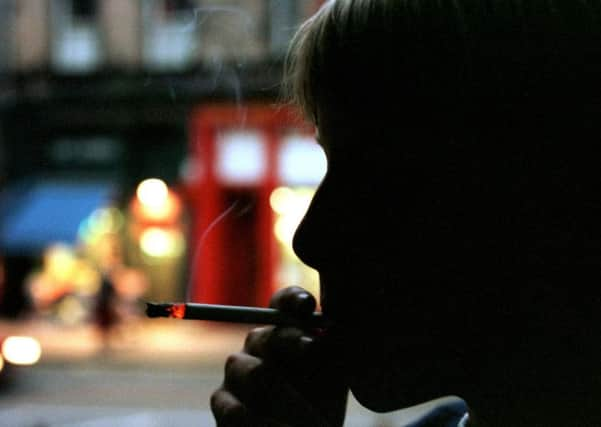Cigarettes are not a big draw for teenagers


In 1996, 29 per cent of 15-year-olds in Scotland smoked regularly, but by 2013 that figure had dropped to nine per cent.
However, the percentage is higher in Fife – with 12 per cent claiming to light up regularly.
Advertisement
Hide AdAdvertisement
Hide AdMid Scotland and Fife MSP Murdo Fraser is urging schools and NHS Fife to work together to ensure youngsters are not only aware of the risks associated with smoking but also what help is available for those looking to kick the habit.
“Smoking is still a huge public health issue and despite recent progress the Scottish Government is still struggling to stop youngsters sparking up,” he said.
“This report indicates that a fairly high percentage of Fife 15 year olds are regular smokers, and I would like to see more done to help prevent youngsters from taking it up.
“Smoking can stunt growth and can cause a number of respiratory related health problems for those under the age of 18 and I would encourage the authorities to up their game when educating these facts to teenagers.”
Advertisement
Hide AdAdvertisement
Hide AdThe statistics come from an analysis of data gathered over almost three decades through the Scottish Schools Adolescent Lifestyle and Substance Use Survey (SALSUS).
The figures also show that after the Scottish Government increased the age of cigarette sales from 16 to 18 in 2007, and introduced the Tobacco Retail Register in 2010, there was a marked decline in the numbers of children buying cigarettes from shops.
Previously, girls had consistently reported higher tobacco use than boys, but there is now no difference between the sexes.
Pupils who live in deprived areas, receive school meals or have a parent who smokes are more likely to use tobacco.
Advertisement
Hide AdAdvertisement
Hide AdThis reflects other evidence which shows a clear link between deprivation and higher smoking rates.
Minister for Public Health Maureen Watt said: “We have set a ground-breaking target to create a tobacco-free generation by 2034 – defined as having an adult smoking rate of five per cent or less.
“It’s well established that the majority of smokers start their habit before they reach 18, so if we can stop people from taking it up in the first place they are far less likely to smoke later on, and are more likely to live longer and healthier lives.”